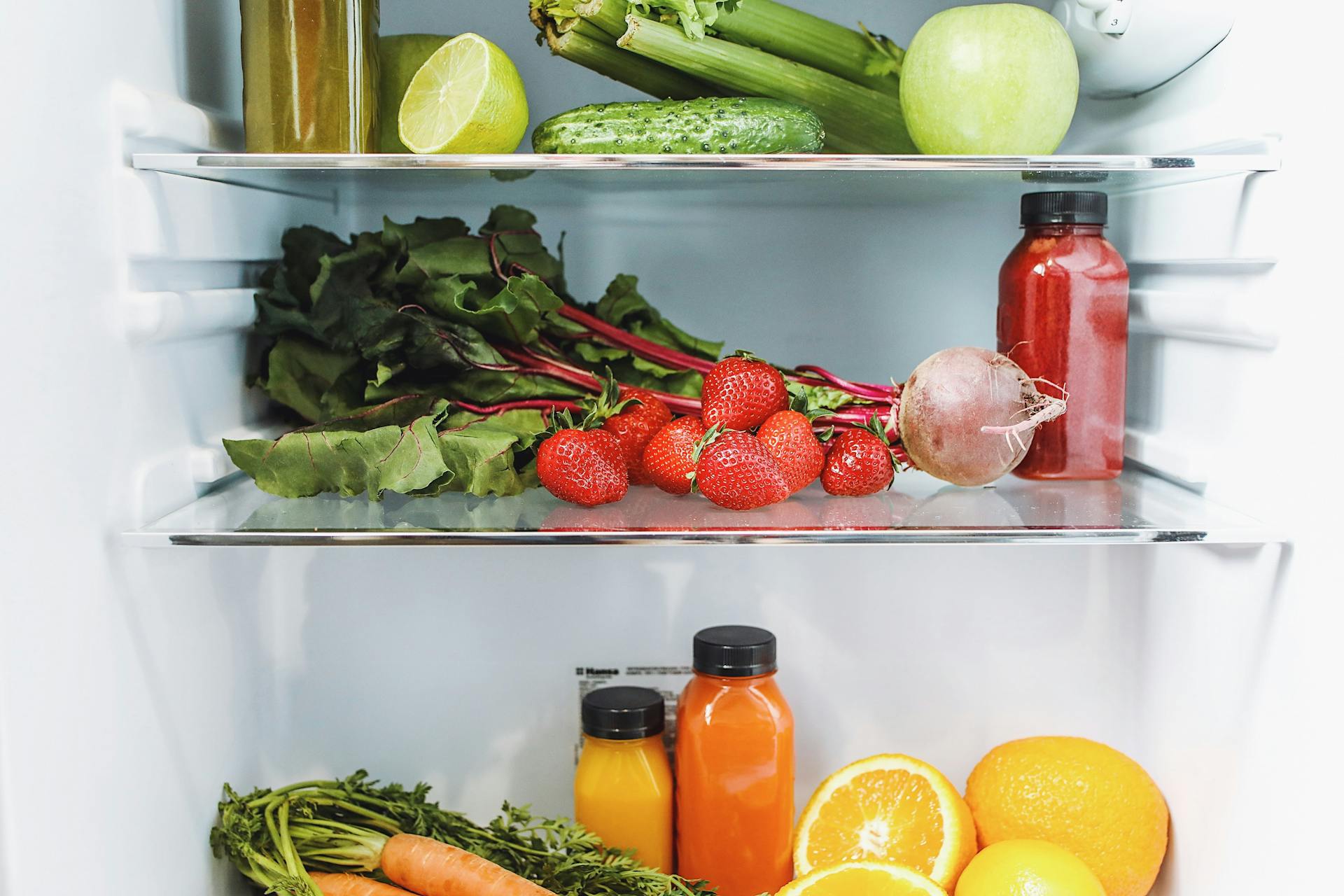Is your fridge just a storage space, or can it be a tool for transformation? A digital nutrient tracker can revolutionize your relationship with food. By providing insights into your nutritional intake, it empowers you to make informed choices. Imagine reaching your health goals with ease, staying motivated with real-time data, and simplifying meal planning. Discover how this innovative technology can lead to a healthier, slimmer you. Embrace the future of personal health management today!
Understanding Digital Nutrient Trackers
Digital nutrient trackers are innovative tools designed to monitor and analyse the nutritional content of food. They provide users with detailed insights into their dietary intake, helping them make informed choices about their nutrition. These trackers often use advanced nutrition tracking technology to scan and record data, which can then be accessed via mobile apps or smart devices.
In parallel : Transform Your Meal Planning: The Benefits of a Kitchen Chalkboard Wall for Tracking Dietary Goals
One of the exciting developments in this field is the smart fridge integration. Smart fridges equipped with digital nutrient trackers can automatically track the nutritional content of stored food items. This integration allows users to receive real-time updates and suggestions for meal planning based on the available ingredients. It simplifies the process of maintaining a balanced diet and ensures that users are aware of the nutritional value of their food.
The importance of tracking nutrition cannot be overstated, especially for those focused on weight management. By using digital nutrient trackers, individuals can set specific dietary goals and monitor their progress. This technology offers a practical solution to maintaining a healthy lifestyle, as it provides accurate and actionable data. As a result, users can make better dietary decisions, ultimately supporting their overall health and wellness journey.
This might interest you : Transform Your Kitchen: The Surprising Benefits of a Full-Length Mirror for Enhanced Self-Awareness and Effective Diet Control
Benefits of Using a Digital Nutrient Tracker
Digital nutrient trackers offer a myriad of advantages for those looking to improve their dietary habits. One of the primary benefits of nutrition tracking is its ability to enhance meal planning and preparation. By providing detailed nutritional information, these tools help users select ingredients that align with their health goals, ensuring balanced and nutritious meals. This feature simplifies the decision-making process, making it easier to prepare meals that are both healthy and satisfying.
Moreover, monitoring nutrient intake is crucial for making healthier choices. Digital nutrient trackers allow users to keep a close eye on their consumption of essential vitamins and minerals, helping them identify any deficiencies or excesses in their diet. This continuous monitoring empowers individuals to adjust their eating habits proactively, fostering long-term health improvements.
Supporting weight loss goals is another significant advantage of using a digital nutrient tracker. By offering data-driven insights, these tools enable users to set realistic weight loss targets and track their progress over time. The precise data provided can highlight areas where adjustments are needed, such as reducing calorie intake or increasing physical activity. Ultimately, digital nutrient trackers serve as valuable allies in the journey towards achieving and maintaining a healthy weight.
User Testimonials and Case Studies
Exploring user experiences with digital nutrient trackers reveals compelling success stories. Many individuals have achieved significant weight loss by leveraging these tools. For instance, Sarah, a 35-year-old teacher, used a digital tracker to shed 20 pounds in six months. Her story highlights the impact of digital tracking on her lifestyle, enabling her to make healthier food choices and stay motivated.
Case studies further illustrate improvements in dietary habits. A study conducted with 100 participants showed that 85% reported better meal planning and increased awareness of their nutrient intake. These changes were attributed to the detailed insights provided by the trackers, which helped users identify nutritional gaps and make informed decisions.
User feedback consistently praises digital nutrient trackers for their ease of use and effectiveness. Many users appreciate the real-time data and personalized recommendations, which simplify the process of maintaining a balanced diet. One user noted, “The tracker transformed my eating habits and kept me accountable.” Such testimonials underscore the practical benefits of these tools in fostering healthier lifestyles.
In summary, success stories and case studies demonstrate the transformative potential of digital nutrient trackers in achieving weight loss and enhancing dietary habits.
Features to Look for in a Digital Nutrient Tracker
When choosing a nutrient tracker, several essential features can significantly enhance the user experience and accuracy. A user-friendly design is crucial, as it ensures that the tracker is accessible to everyone, regardless of their technical expertise. Look for a tracker with an intuitive interface that simplifies data entry and retrieval. This allows users to focus on their nutritional goals without being bogged down by complex operations.
Compatibility with existing kitchen technology is another important consideration. A digital nutrient tracker should seamlessly integrate with devices like smart fridges or kitchen scales, providing a cohesive ecosystem for monitoring food intake. This integration ensures that users receive comprehensive data, enabling them to make informed dietary decisions.
Additionally, evaluating the user interface and ease of navigation is vital. A well-designed interface should offer clear visual cues and straightforward menus, making it easy to track and analyse nutritional information. Features such as barcode scanning and voice recognition can further enhance usability, allowing for quick and accurate data logging.
In summary, when selecting a digital nutrient tracker, prioritize features that improve functionality and user engagement, ensuring it fits seamlessly into your daily routine.
Integrating a Digital Nutrient Tracker into Your Routine
Incorporating a digital nutrient tracker into your daily nutrition management can transform your eating habits and enhance your lifestyle integration. Here are some tips to seamlessly integrate tracking into your routine.
Begin by setting a specific time each day to log your meals. Consistency is key to maintaining tracking habits. Whether it’s after each meal or at the end of the day, having a routine ensures you don’t miss entries.
To balance technology use with intuitive eating practices, listen to your body’s hunger cues and use the tracker as a guide rather than a strict rulebook. By focusing on how you feel, you can align your nutritional goals with your body’s needs, promoting a healthier relationship with food.
For effective lifestyle integration, consider these strategies:
- Plan meals in advance and use the tracker to adjust portions based on nutritional content.
- Set reminders on your smartphone to log meals, ensuring consistent tracking habits.
- Use the tracker to identify patterns in your diet, helping you make informed adjustments.
By following these tips, you can seamlessly integrate a digital nutrient tracker into your routine, enhancing your daily nutrition management and supporting a balanced lifestyle.
Future of Digital Nutrient Tracking Technology
As health technology innovation advances, the landscape of digital nutrient tracking is poised for significant transformation. Emerging trends suggest that future developments will focus on enhancing user experience and data accuracy.
One of the most exciting innovations on the horizon is the integration of artificial intelligence (AI) in personalized nutrition tracking. AI algorithms can analyse vast amounts of dietary data to offer tailored recommendations, adapting to individual preferences and health goals. This level of personalization ensures that users receive the most relevant advice for their unique nutritional needs.
In the realm of smart kitchen appliances, predictions indicate a shift towards more intuitive and interconnected systems. Future smart fridges and kitchen scales may feature enhanced sensors and connectivity, allowing them to communicate seamlessly with digital nutrient trackers. This evolution will enable a more comprehensive understanding of food consumption patterns.
Moreover, the potential for AI-driven insights extends beyond mere tracking. By predicting nutrient deficiencies or excesses, AI can proactively suggest dietary adjustments, promoting long-term health benefits. As these technologies continue to evolve, they promise to revolutionize how we approach nutrition, making it more accessible and effective for everyone.












